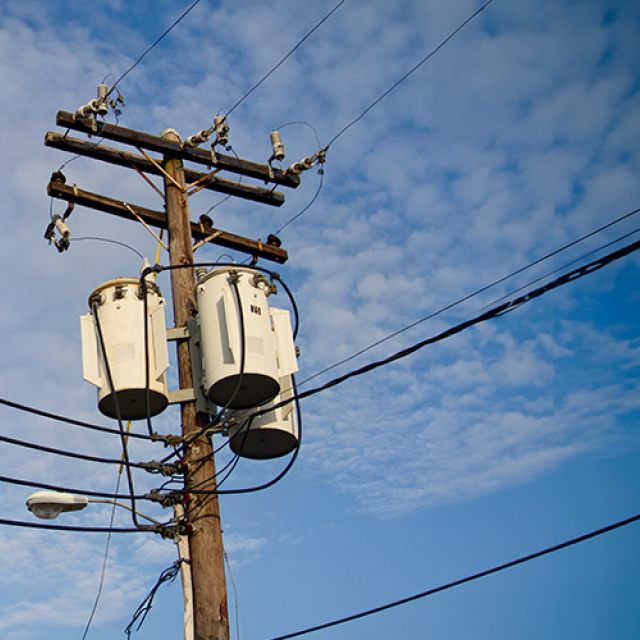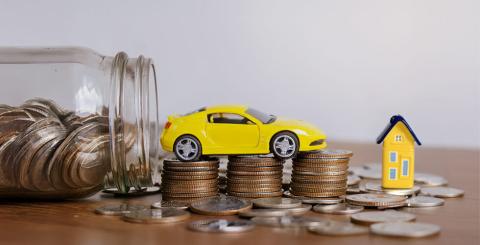What to do in the event of a power outage

Line maintenance, high winds, ice, snowstorms, thunderstorms, oh my! Any number of factors could lead to a power outage in your home. Whether planned or unplanned, local or widespread, brief or extended, an outage can be a hassle and can sometimes put your comfort and safety at risk. But by being well prepared for a loss of power, you can minimize the impact on the well-being of your household.
What to do before a power outage
Is a storm coming in the next few days? Get ready! Here is a list of precautions to take when there is a risk of a power outage in your area:
- Pay close attention to weather conditions, especially during the winter and periods of extreme heat.
- Have an emergency plan for your family. The Government of Quebec website has tips to help you create yours.
- Find out about your municipality’s emergency procedures in the event of an extended power outage.
- Make sure you have essential supplies at hand. Here are a few things to have ready:
- drinking water supplies
- battery-operated radio or other communication device
- first-aid kit
- lighter and matches
- battery-operated headlamp or flashlight
- candles or battery-operated lamp(s)
- non-perishable food
- manual can opener
- blankets and warm clothing
- fuel (if you have a fireplace)
- generator
- spare batteries for anything powered by non-rechargeable batteries
- Collect your supplies ahead of time and make sure you have enough to meet your basic needs for a few days, including food, personal care, medications, and so on.
- If you or a family member has a health condition that relies on an electrical device, plan to have a continuous source of backup power.
- Protect your sensitive electronics with a surge protector.
- If you plan to use a combustion heater, install a carbon monoxide detector. Read about how to prevent carbon monoxide poisoning and what the symptoms are.
- Make sure your backup heating system is in good working order and meets current safety standards. Review the manufacturer’s recommendations for installation and operation during the outage.
- Make sure your car’s fuel tank is at least half full so you’ll be ready in an emergency or evacuation.
What to do during a power outage
When you’re faced with a power outage, the top priority is your family’s safety. Monitor the situation constantly and follow these recommendations:
- Check the Hydro-Québec website to find out if it’s a major outage. To do this, activate mobile data on your device so you can access the Internet. You can use the same link to keep track of developments. Information on power outages is also available on the Hydro-Québec mobile app.
- If it is not a major outage, check to see if your home is the only one affected. If it is, check your electrical box and fuses. Don’t hesitate to contact a certified electrician if you feel more comfortable doing so.
- If it’s not a major outage but your neighbours don’t have power either, contact Hydro-Québec.
- If any electrical appliances operated by a switch, such a washer, dryer, stove, portable heater, hairdryer, toaster, or kettle, were on when the outage started, turn them off right away. If your dishwasher was running, open the door to stop it.
- Turn off all the lights except one inside your home and one outside, so you’ll know when power is restored.
- Unplug all electronic devices such as computers, televisions, and chargers to reduce the risk of damage from a power surge when service is restored.
- Do not unplug or open the refrigerator or freezer. When the door stays closed, a full freezer can keep food frozen for 24 to 36 hours, while a refrigerator can keep food cold for 4 hours.
- Avoid using hot water.
- Turn your thermostats down to the lowest temperature. On some electronic models, the display will remain visible for a few minutes even though there is no power.
- Be prudent when using sources of backup heat such as fireplaces, candles, portable heaters, and so on. Equipment designed for outdoor use should never be used indoors. Some of these devices are dangerous because they can cause carbon monoxide poisoning.
- To reduce the risk of fire use flashlights, not candles.
- Keep an eye on water levels in your pumps, and if necessary, get a backup venturi pump or a battery-operated model.
Here’s the good news: according to Hydro-Québec, every little thing you do during the outage to prevent grid overload when the power comes back on will help with service restoration.
What to do after a power outage
Once power is restored, it’s important to check a few things before you get back into your routine. These tips will help you make sure everything is in order and that nothing was damaged when the power came back on:
- Check that all electrical systems in your home are back on and working properly.
- Make sure the water heater is full before turning it on.
- Restore power by turning it on at the main switch.
- Open the water main and all the faucets to purge the air.
- When you start using your electronic devices again, turn them on one at a time.
- Heat your home gradually rather than quickly.
- Do not use food or medications that needed to be kept cold and are no longer at a safe temperature.
- If you are unsure of the status of your electrical system and appliances, seek the advice of a certified electrician.
Need to make a home insurance claim?
Did the power outage cause damage to your personal property or your home? Promutuel Insurance is THERE for you at difficult times like this. If you’ve had damage, contact us to make a home insurance claim. Conditions, limitations, and exclusions may apply.
To speed up the claims process: During a major power outage or a local storm, our staff are very busy. To get your claim quickly to the right place and speed up processing time, file your claim for minor damages online via your Client Space.
Power outages are never fun, but you can minimize the stress by planning ahead and by getting in touch with us in an emergency.



